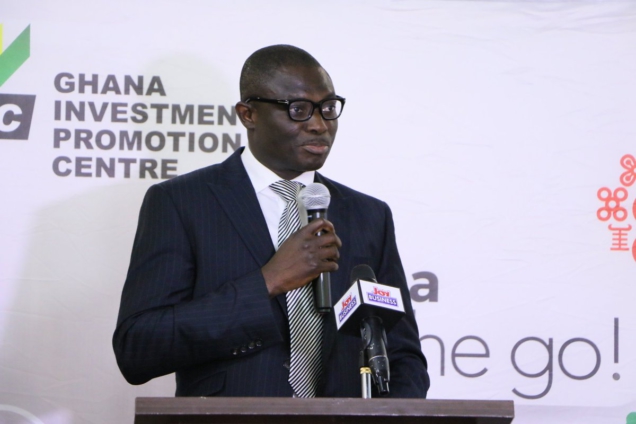Deputy Minister of Finance, Kwaku Agyemang Kwarteng says Ghana is on course to being delisted by the European Union (EU) from its crimes watch list.
According to him, the Financial Action Task Force (FATF), on whose observation the EU's decision is premised, has assured the country of good standing in relation to an action plan developed to review the country's financial activities and performance.
"They have issued a statement saying that we are on course, in respect of the action plan, and so I can give assurance on behalf of government that by the close of the year, we would have completed the action plan that we jointly developed with FATF. And once we get off their observation, the EU will automatically delist us," he said.
His comments come after Ghana’s Embassy in Belgium capital Brussels, was ordered by to withdraw all its money so that the bank will proceed to close the embassy’s accounts.
Mr Kwarteng revealed that the country was placed under observation in September 2019 by FATF, an organ of the global authority that oversees the fight against elated financial flows and the financing of terrorism.
In an interaction with Joy News on Monday, the Minister said the EU, however, undertook a different system of checks from which it decided to include the country in its crime watch list.
“The EU proceeded to do its own qualification of countries in terms of deficiencies in their Anti-Money Laundering and the Countering of the Financing of Terrorism (AML/CFT) regimes.
"They said their baseline is FATF, and you are included in their list if you are under the observation of the Financial Action Task Force,” he noted.
Mr. Kwarteng further explained that, unlike other countries whose enlisting come on the back of the European Union’s issues with their AML/CFT regimes, Ghana’s inclusion has been communicated severally to be based on FATF’s observation.
He concluded by adding that, to be delisted from the European Union's crimes watchlist, the Ministry must first complete FATF's action plan, essentially getting off its observation.
The European Union included Ghana in money-laundering blacklist earlier this year, putting placing the country's financial transactions under greater scrutiny.
Latest Stories
-
U.S. and Israeli Strikes on Iran: A Racist, Colonialist Assault on Sovereignty
21 minutes -
Your unfair insinuations make me doubt your intentions even more – Prof Gyampo refutes OSP’s account of SML raid contact
27 minutes -
Prof Gyampo called and texted OSP during raid on SML – OSP claims
1 hour -
Nigeria sprinter Favour Ofili switches allegiance to Turkey
1 hour -
Ahwoi and Bartels-Kodwo families open residence to mourners following passing of Ama Adoma Bartels-Kodwo
1 hour -
Mpox Outbreak: Western Regional Health Directorate springs into action
1 hour -
OSP rebuts Gyampo’s ‘vendetta’ allegation over investigation into Ofori-Atta
2 hours -
Ukraine still holds ground inside Russia’s Kursk, commander says
3 hours -
Nkwanta South MCE pays courtesy call on national Chief Imam, seeks prayers for peace
3 hours -
Kwasi Sibo helps power Real Oviedo to LaLiga promotion after 24-year wait
3 hours -
Broadcast and Build: How 2 of Ghana’s leading media giants are driving a bold socio-economic reset through strategic trade fairs
4 hours -
Actress Kalsoume Sinare named Ghana’s ambassador to Spain
4 hours -
Nkyinkyim says band music pays, but only with proper investment
5 hours -
Ecobank-JoyNews Habitat Fair: Day 3 promises mouth-watering discounts and great sales
5 hours -
Parents now request music lessons for their children from us – Nkyinkyim band
5 hours

